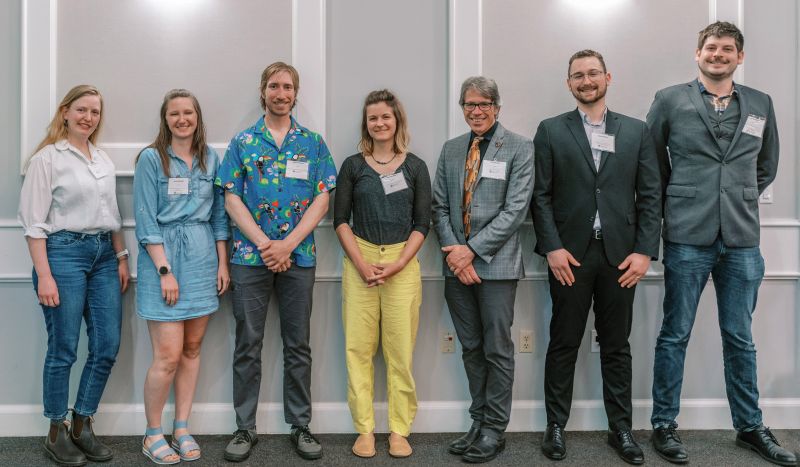
For Martha Rose Dawson, respect and care for the natural world is something of a family tradition. Raised in Riverside, California, Dawson grew up surrounded by stories of her parents, who met as park rangers at Bryce Canyon National Park. That early exposure to public lands and conservation planted a seed that would grow into a passion.
“I was raised to appreciate and respect our public lands from an early age,” Dawson said. “The desert was my backyard, and I was eager to go to a new environment and learn about the differences between the PNW and California ecosystems.”
That desire brought her to the Oregon State University College of Forestry, where she will graduate on Saturday with a degree in natural resources.
Throughout her time at OSU, Dawson found a sense of purpose at the intersection of conservation and human-wildlife relationships.
“What I’m most proud of is developing a clearer sense of purpose and passion,” she said. “Whether it was leading a group project, helping a classmate through a tough term, or just having meaningful conversations with faculty and my mentors, I feel like I’ve really contributed to and benefited from the COF community.”
One of those mentors is Associate Professor Ashley D’Antonio, who has been a guiding influence since her freshman year.
“Dr. D’Antonio is a huge reason I’m pursuing graduate school,” Dawson said. “She always encouraged me to push outside my comfort zone and apply for opportunities I never thought I could get. Her passion for her students and her field is so inspiring.”
Professor D’Antonio saw Dawson’s growth firsthand over the years and is continually impressed by her drive and leadership.
“Martha’s intelligence and dedication to her education truly stands out,” she shared. “I was especially impressed by her enthusiasm and leadership in my TRAL 456 class, where students collaborated in project teams to develop a recreation management plan. She has a bright future ahead, and I’m excited for her next steps in her education.”
After graduating, Dawson will spend the summer working as an Interpretive Park Ranger at Glacier National Park. Stationed at the Logan Pass Visitor Center, she’ll give talks on local wildlife and answer visitor questions — bringing her full circle to the family legacy of public land stewardship.

In the fall, Dawson will begin a master’s degree in natural resources at Utah State University. Her research will focus on how wildlife movement patterns are influenced by human activity across high-use and low-use recreation areas in Utah wildlife management areas.
Dawson also has some advice for incoming students. “Don’t be afraid to talk to your professors! Even small conversations can spark connections that shape your time at OSU and your future beyond it.”
With roots in the desert and new growth in the forests of Oregon, Martha Rose Dawson continues a legacy of care, curiosity and commitment to protecting our natural world.















